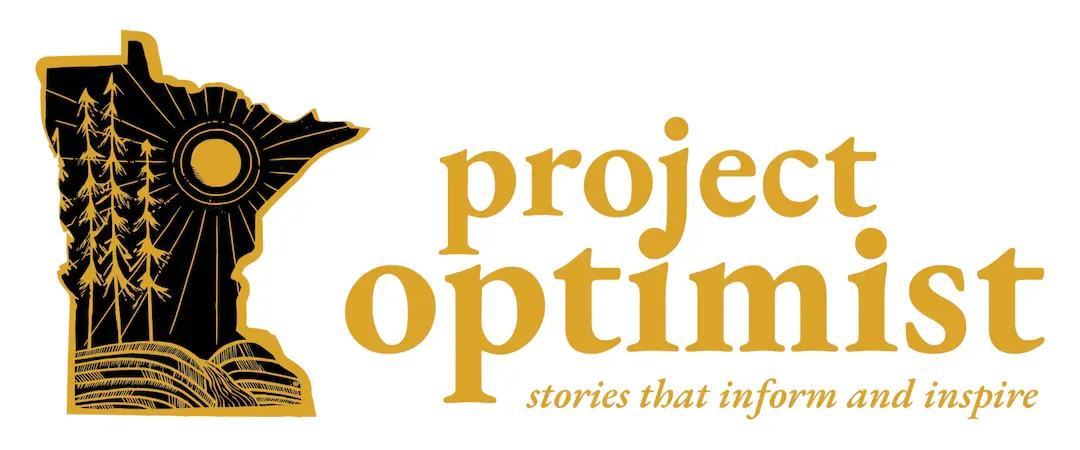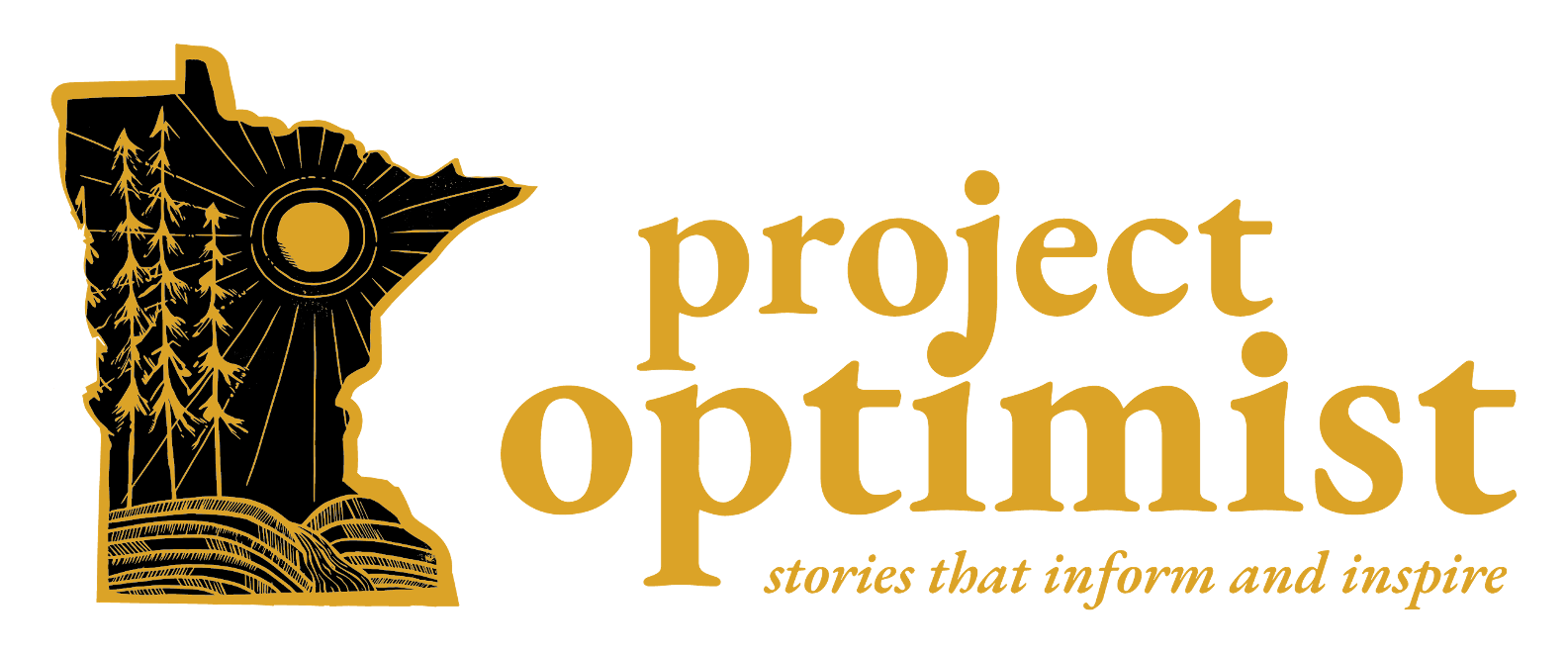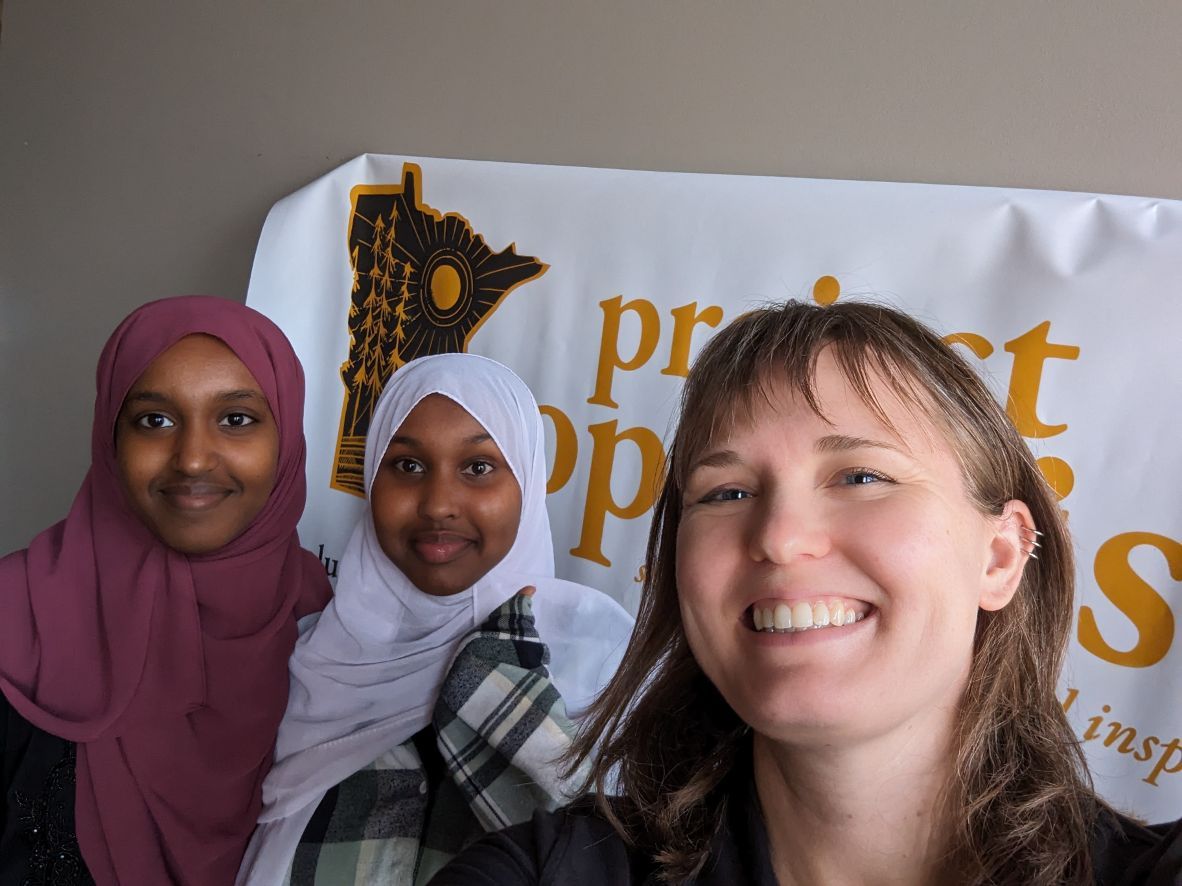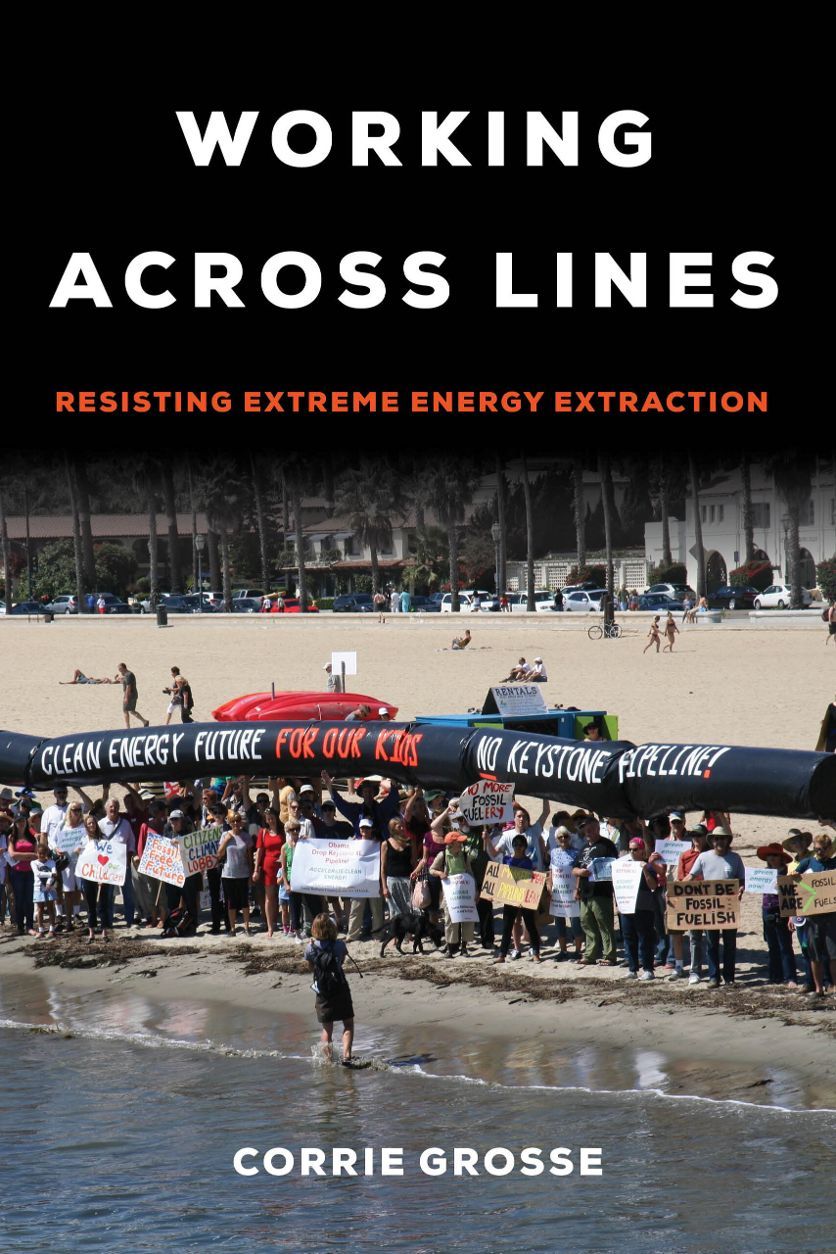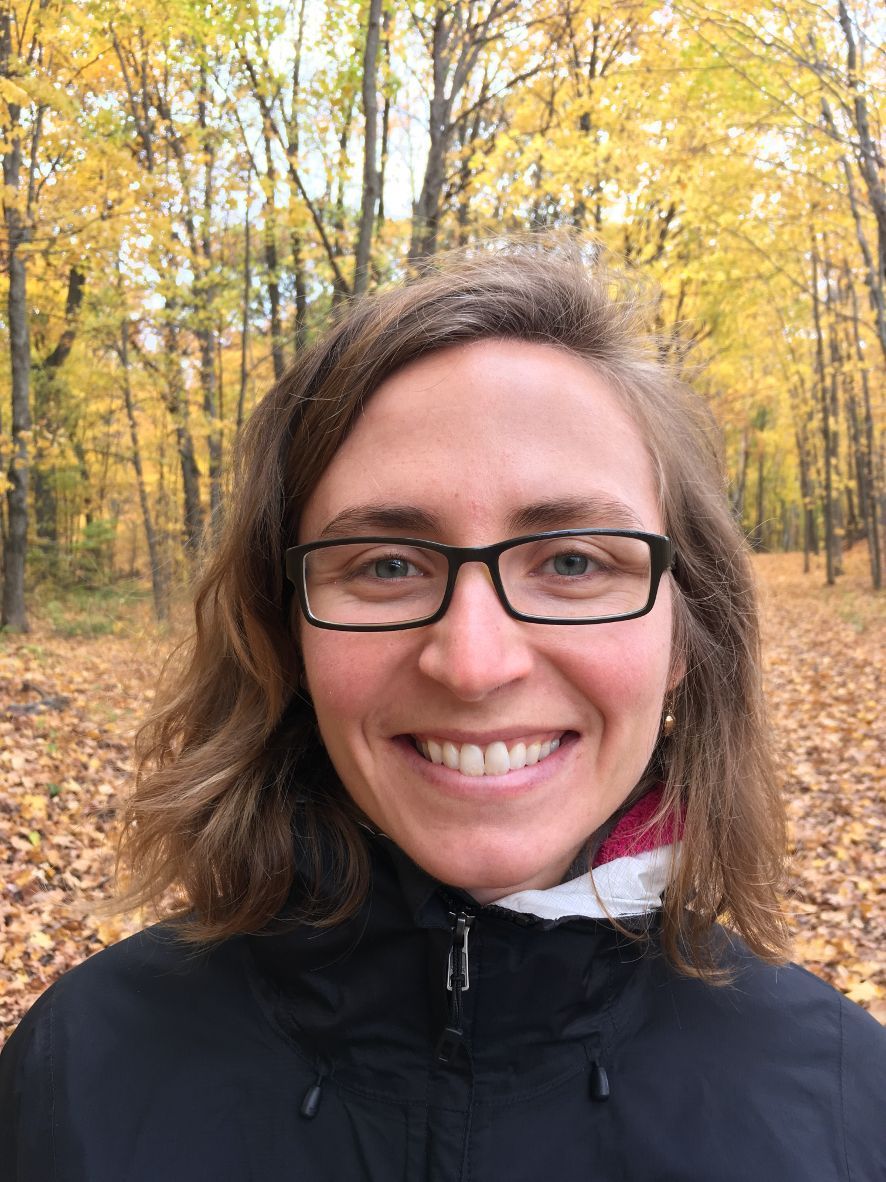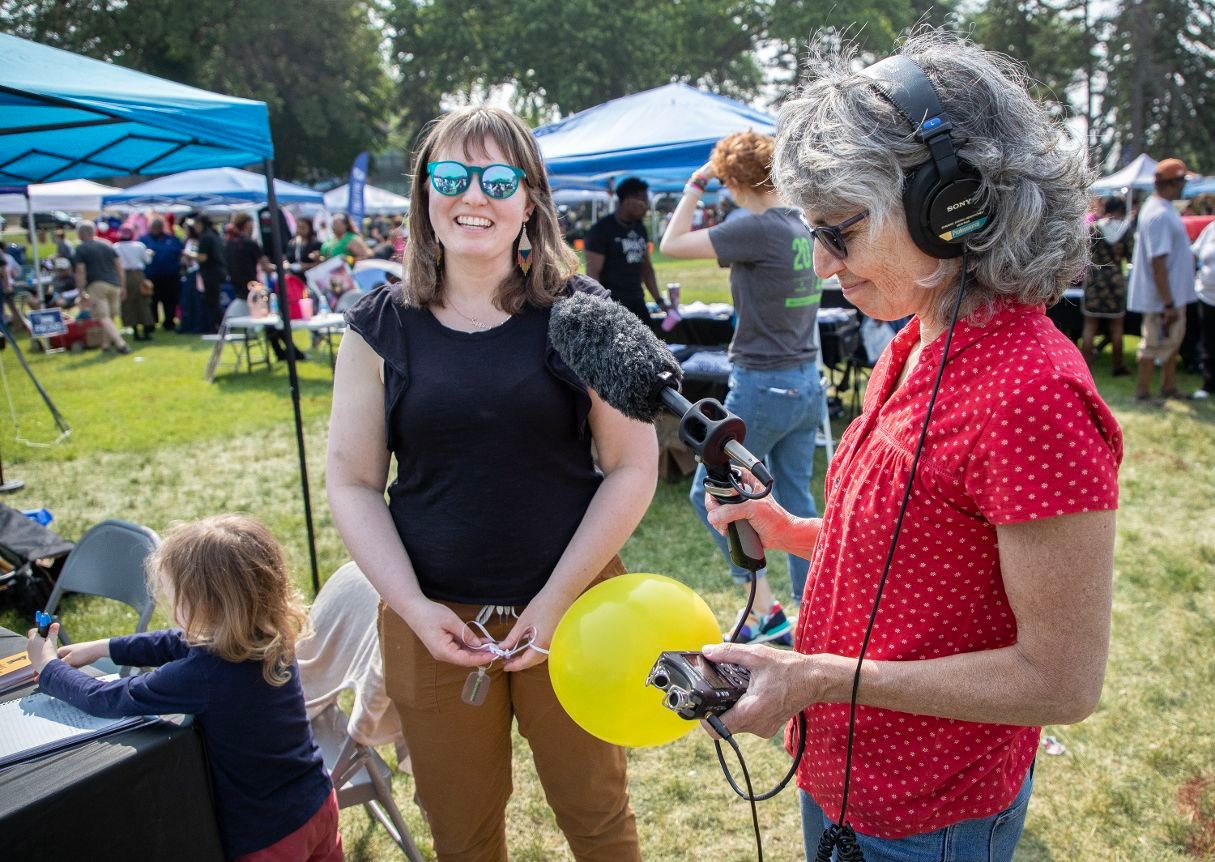How relationships and trust can bridge political divides
Book excerpt this week from Dr. Corrie Grosse's 'Working Across Lines'
Book excerpt this week from Dr. Corrie Grosse's 'Working Across Lines'
We've got a book excerpt from a local scholar
Hello, hello! Nora here.
Welcome to a group of new subscribers! Project Optimist had a table at the St. Cloud Juneteenth celebration, where we signed up a few dozen new readers. Learn more about us on our About page and explore past stories on our website.
Today I've got an excerpt from the book Working Across Lines: Resisting Extreme Energy Extraction, by Dr. Corrie Grosse. Corrie is a climate justice expert in central Minnesota and associate professor at the College of St. Benedict and St. John's University.
Corrie's book is exciting to me because she explores how people across political divides found common ground. I hope you enjoy it too!
As a reporter, I have followed Corrie's work for the last five years. And she was infinitely patient in explaining the social and political context of climate change to me at my most cynical (political reporting will do that to you).
Before we get to the book, I want to thank the folks who've donated to our summer fundraiser. We have awesome notebooks and brand new stickers for monthly doners and those who give $25 or more.
Support Project Optimist with a donation!
Project Optimist founder Nora Hertel with high school seniors Ifrah (left) and Rahma (center) after a Journalism 101 training in St. Cloud on June 20, 2023.
It is a super busy time for Project Optimist. We're building out our news division by hiring a managing editor and a social media storyteller. We have five reporters working on solutions journalism stories that I am so eager to share with you. If you know any journalists looking for work, please share the job posts with them!
Alexa, Project Optimist's event manager, is setting up seven dialogue events we'll hold in late summer and fall. We'll do another call for volunteer moderators in coming weeks and offer a training in August. We're looking for sponsors to support the dialogues and our related podcast.
Let me know if you want to get on board!
Working Across Lines - Chapter 3
Idaho Part 1: Talking across political lines by building relationships
By Corrie Grosse
In this chapter, I delve into what it means to talk across political lines, typically those that demarcate conservative and liberal ideologies. I draw on what I learned from folks resisting fracking in western Idaho, from how they talked with their fellow group members, and, as I observed in my time living with them, how they spoke to people like the dishwasher repairman, or the postal worker they encountered in their daily lives.
An important condition for talking across lines is relationships and trust. When these exist, there is potential for people to hear each other and to work together. When these do not exist, building coalitions is challenging. Understanding how trust is built or inhibited depends on understanding activists’ lived experiences, values and the social setting in their community. Therefore, I begin my account of activism in southwest Idaho with stories of interviewees’ journeys into activism. These experiences provide important grounding for why activists have needed to develop the tactic of talking across lines and illustrate the centrality of relationships to building resistance to extreme energy extraction.
I open with a story related to the 2016 U.S. presidential election, a series of events characterizing the context in which interviewees expressed and developed their views on politics and organizing. This account illustrates two points. First, it displays the polarizing nature of labels in political rhetoric and consequently, the need to talk across lines by drawing on common values. Secondly, it evidences the promise of one of this book’s core themes: relational organizing.
Dr. Corrie Grosse (Courtesy of Corrie Grosse)
Lunch conversations on socialism
On February 18, 2016, Bernie Sanders, self-proclaimed socialist competitor for the Democratic candidate for the 2016 U.S. presidential election sent me a campaign email. In it, he highlighted how his campaign was succeeding because of support from working people, not elites. The email explained that elites, unable to drive Sanders’ campaign, had lashed out in the lead-up to the February 20 caucus in Nevada, “not just at Bernie, but at you.” A bullet point in the email read, “Bill Clinton compared supporters powering our political revolution — people like you — to the tea party. The tea party!”
Just two months prior, in December 2015, I had been spending a lot of time with folks sympathetic to tea party ideas. With one, 76-year-old Dottie Hawthorne, I had even had a productive conversation about Bernie Sanders. In our interview over tuna sandwiches in Dottie’s living room, Dottie had described socialism and communism as close to one another and “frightening, so frightening.”
“You cannot take from the rich and give to the poor [...] you need to give the poor incentives to grow and to earn and to be proud of themselves. [...] It’s against my way of thinking [and] common sense.”
Later, disgusted with both “sides of the aisle” of U.S. politics, Dottie asked: "As far as our people who are going to run for president, my goodness, which one would you choose, if you, no political affiliation, just which of the candidates would you choose right now?"
Corrie: "Bernie."
Dottie: "And why?"
Corrie: "Because he’s a socialist."
Dottie: "And you think socialism is good?"
Corrie: "Yeah."
Dottie: "I guess I need to know why you think that."
We proceeded to discuss socialism, welfare and conservatism. Though Dottie was not convinced at the end our conversation that Bernie was “who we can count on to see that [taxation] is done right,” she did say, “Eh, food for thought huh, very interesting, I have not read very much about Bernie Sanders.”
Here, in this brief statement, I see a kernel of hope. Dottie, a 76-year-old conservative rancher, and me, a 25-year-old woman who has spent her last four years under the mentorship of radical Marxist sociologists in California — the bastion of liberalism in the United States — were able to have a calm, respectful conversation about socialism. We did not shoot each other down, but listened, and, based on listening, offered examples and perspectives gleaned from our lived experiences. We shared our views with each other. We talked across lines.
Part of talking across our lines of difference was agreeing to disagree, being able to sit with that disagreement while enjoying each other’s company and appreciating each other’s contribution to our common cause — the fight against fracking.
This is the kind of conversation I see becoming more possible because of the organizing practices Citizens Allied for Integrity and Accountability (CAIA), a grassroots nonprofit organization dedicated to government and corporate integrity and accountability and therefore, the fight against fracking. Dottie’s and my conversation was one that necessitated a relationship of trust, which usually, and especially when two people hold opposing views, requires time.
Bernie’s email to me, had Dottie read it, would have undone any progress she and I made in communicating to each other. It was an email to bind certain people together against others. In this case, others were tea partiers and the Democratic establishment represented by Bill and Hillary Clinton (Bernie’s competitor). This type of writing denies the possibility of conservative people working for progressive change, people like interviewees Jan and Wayne.
Jan and Wayne were former leaders of a local tea party group and core members of CAIA. They stressed the local character of their tea party group, and the diversity of tea parties more generally, identifying limited government control and spending as the one unifying tea party theme.
They argued that their political affiliation had nothing to do with their stance on oil and gas, a statement that could come as a surprise to someone who supposes that tea party equals conservative equals pro fossil fuels.
As Jan explained, “People are usually surprised because we feel the way we feel about oil and gas [and] are Republicans or conservative. It’s like you can’t be that way. And it’s like, ‘What do you mean?’ If you are thinking, really thinking about the issue and you don’t like it, it has nothing to do with what your beliefs are politically.”
Wayne’s language was more colorful: “Politics does not play a role in this big picture [of oil and gas]. I don’t give a rat’s behind about your political affiliation; I want to stop these a--holes from what they are doing.”
Jan and Wayne were able to organize with self-identified Democratic anti-fracking activists because the group expressly rejected stereotypes embedded within political labels. In fact, the group worked to avoid use of labels entirely, in their messaging and internal discussion, something I delve into in the next chapter. What is the effect then, of pitting Bernie supporters against tea partiers? Might it be more productive for building progressive change, for building climate justice, to think and communicate in unifying, rather than dividing terms?
Communicating in unifying terms was exactly what CAIA had developed as its primary organizing strategy. CAIA members did not come up with this strategy out of the blue, however. Talking across lines was a hard-won strategy developed to meet the needs of activists organizing amidst small, politically red farming towns (approximately 75% of voters in this area voted for Donald Trump in the 2016 election), activists who had started out as people who did not think of themselves as activists.
Read the full chapter on the Project Optimist website here.
Promotion from Project Optimist

Make a $25 donation and get some swag
We've got notebooks and stickers for donors giving $25 or more and those who commit to monthly gifts. Celebrate this newsletter's birthday!
Donate now!
See you next week
Be well!
♥ Nora Hertel, founder of Project Optimist
Here's another chance to donate!
Project Optimist founder Nora Hertel talking with audio producer and journalist Laurie Stern at the St. Cloud Juneteenth festival on June 16, 2023. (Colleen Harrison for Project Optimist)
Copyright © 2023 The Optimist, All rights reserved.
P.O. Box 298, St. Michael, Minnesota 55376

